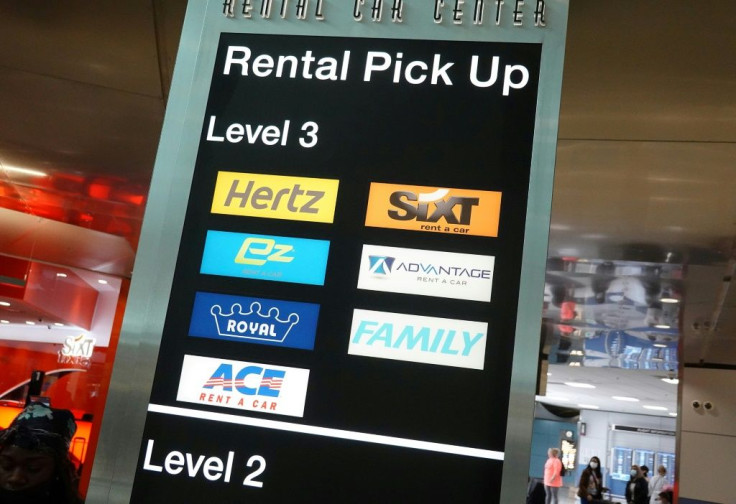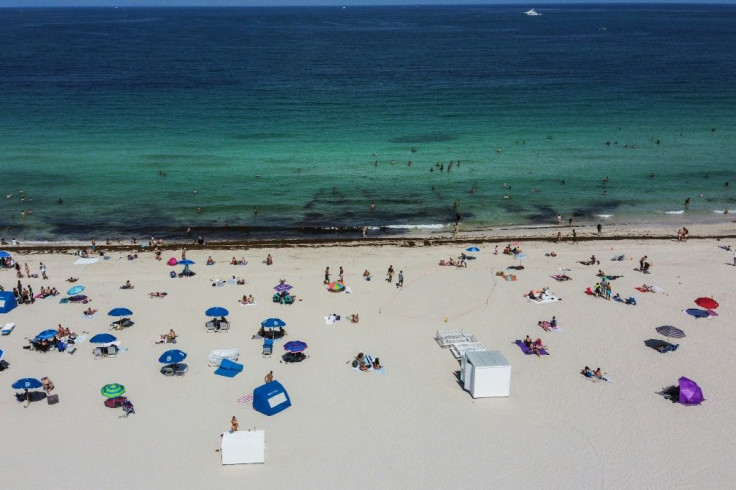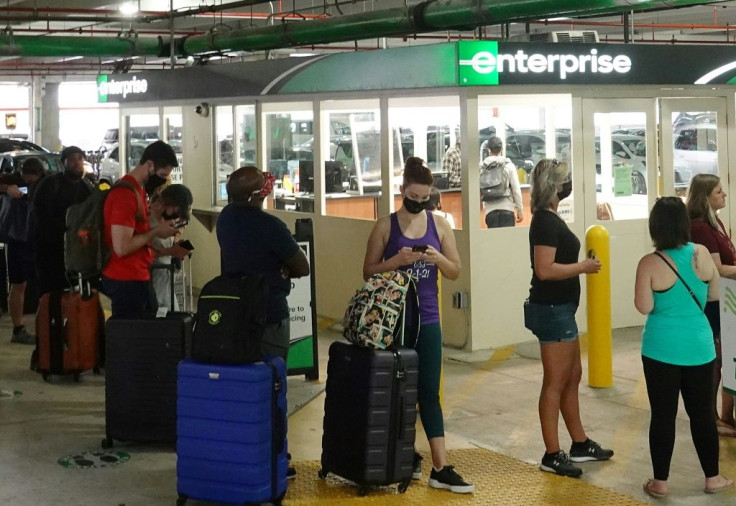Rental Cars Becoming Scarce And Expensive For US Travelers
Talk about sticker shock: The $600 price tag for Joe Pohlen to rent a car for two days was twice as expensive as his plane ticket.
The Michigan businessman was stunned, but the experience is becoming more common for US travelers, an unexpected consequence of the pandemic.
Not only have prices skyrocketed, it can be hard to just find a car at all.
Pohlen told AFP that Hertz was the only agency that had a vehicle available during a brief trip to the East Coast.
And though he chose "the cheapest possible option," the bill came to $601.59 for a vehicle rented in Maryland and returned in Pennsylvania two days later.

Business and tourist travel came to a screeching halt in March 2020 when the Covid-19 pandemic hit the United States, prompting car rental companies to sell off their fleets and stop buying new cars.
Avis in February said it had reduced its fleet by a third.
But now that mass vaccinations have allowed travelers to get back on the road, the companies are struggling to meet the surge in reservations.
Starting in March, demand increased in areas such as Florida, Arizona and around Utah ski resorts, Avis chief Joseph Ferraro said on a conference call Tuesday.
An Enterprise spokesperson told AFP that like the rest of the industry the company "is seeing increased demand for vehicles for spring and summer travel -- especially in popular US vacation destinations."

The global semiconductor shortage that has disrupted auto production since the start of the year has meanwhile only made matters worse for the companies trying to build back their stock of cars.
Because of the production issues and pent-up demand from consumers, automakers prefer to sell their available cars to individuals, who pay more than the rental agencies.
That has forced those companies to adapt as best they can, including by holding onto their cars longer.

"One of the silver linings of this pandemic is that our vehicles just didn't have as many miles put on them, allowing us the flexibility to hold them slightly longer," Ferraro said.
Avis also is focusing more on vehicle maintenance.
But for consumers, "to get into something that's three years old, four years old, and with 30 or 50,000 miles, that doesn't have the features that you are accustomed to, that could really impact your perception of the brand," said Ivan Drury, an auto industry analyst at Edmunds.
That is especially true if customers have to pay a lot more than usual.
To avoid frustration, Enterprise recommends travelers "reserve a vehicle as early as possible."
"Providing flexible travel dates and branch pick-up locations in your search may also help increase your options," the company said.
The higher cost for rental cars comes just as the reopening economy has led to a boom in demand for certain products and services. That coupled with supply bottlenecks and unforseen events like the semiconductor shortages has pushed many US prices higher.
But the car rental agencies' struggles have proven a boon for platforms like Turo, a car sharing marketplace that connects car owners with potential renters.
"We are thrilled that a record number of travelers are discovering the amazing hospitality of Turo hosts, our superior selection, convenience and value," Turo chief Andre Haddad said in a message to AFP.
Bobby Binissa, an emergency room trauma nurse in Los Angeles, has offered three cars on Turo since the start of the year.
"My Tesla has been booked for the last two months, at least until the end of May," he told AFP.
And he has two old vehicles he rents as well, when his family doesn't need them.
"I have upped the prices, because demand is picking up so. But not too high because if you raise your price, then you have competition from the other hosts."
Drury says the unusual situation has offered these platforms the opportunity to really compete with rental agencies for the first time.
But it won't last long since once the companies rebuild their fleets they will be "operating in a different league."
© Copyright AFP 2024. All rights reserved.





















